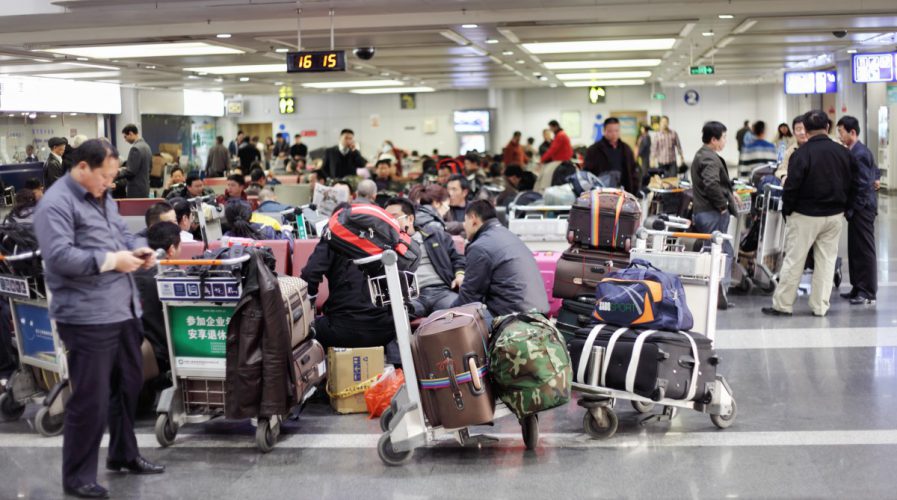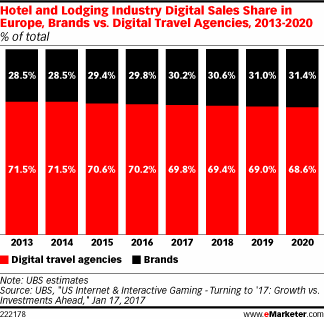
Trivago is banking on artificial intelligence to boost its business. Source: Alexander Gatsenko/Shutterstock
Trivago enlists AI in trip personalisation
HOTEL price comparison site Trivago announced that it was pivoting to the power of artificial intelligence in order to drive up its waning business in a sector that is becoming increasingly competitive as more and more travel services move online.
The popular site said that it had purchased personalization technology firm tripl that would be helping the company push more tailored and individual experiences for their customers through machine learning-powered systems. German company tripl will be bringing onboard an algorithm that would trawl users’ social media feeds for information that can be fed back in as data that can help produce more accurate travel recommendations.

Source: eMarketer
Tripl’s technology “imitates the way a travel agent would recommend hotel experiences relevant to the customer and combines it with the ease of online services,” Trivago said in a press statement.
Online travel agents (OTAs) such as Agoda and Booking.com have really changed the game for the travel market but aggregating hotels in bulk, thus making it useful for the budget traveller. However, eMarketer researchers found that in certain regions, the growth of OTAs may have plateaued due to stronger brand consciousness by travellers.
The research house reported that UBS estimates OTAs have captured 70 percent of digital hotel and lodging sales in each of the last several years, but that “travelers increasingly favor direct bookings with brands.”
Projections are equally negative for the Asia Pacific region, which UBS estimates will see a similar fall in market share for OTAs. eMarketer said that they expect similar slackening in worldwide digital travel sales for leisure and unmanaged business travel.
SEE ALSO: Alipay partners with Yelp to tap lucrative Chinese travel market
Trivago, likely sensing this drop in growth, has been investing heavily in digital advertising spending. For example, the company spent nearly EUR90 million (US$100 million) on digital travel advertising according to data company Nielsen.
Trivago’s business relies heavily on the widespread availability of the OTA business model, so any fall away in that capacity could impact the former quite significantly. Whether or not the service can recoup enough momentum before it’s too late remains to be seen.
READ MORE
- The criticality of endpoint management in cybersecurity and operations
- Ethical AI: The renewed importance of safeguarding data and customer privacy in Generative AI applications
- How Japan balances AI-driven opportunities with cybersecurity needs
- Deploying SASE: Benchmarking your approach
- Insurance everywhere all at once: the digital transformation of the APAC insurance industry
